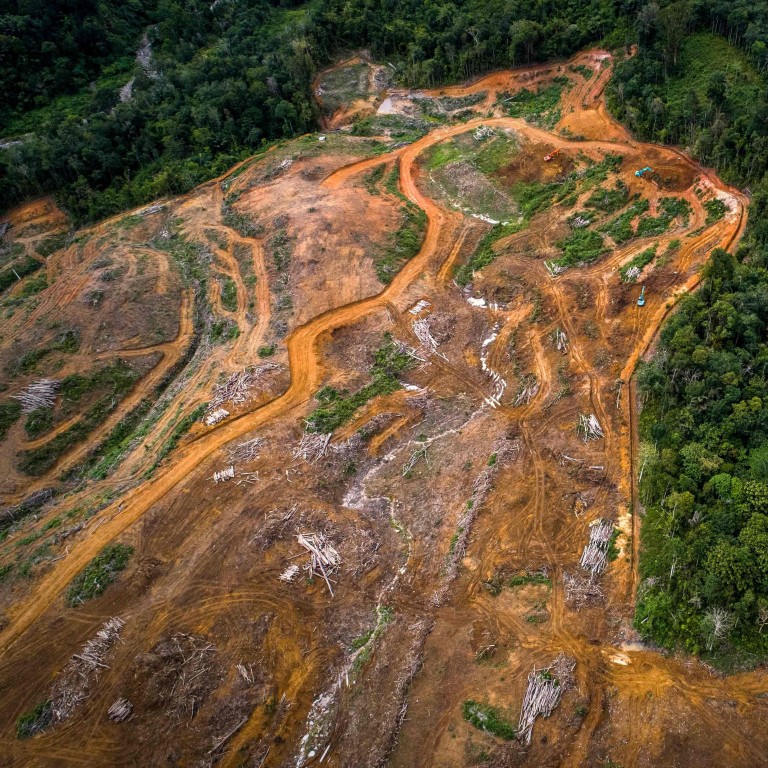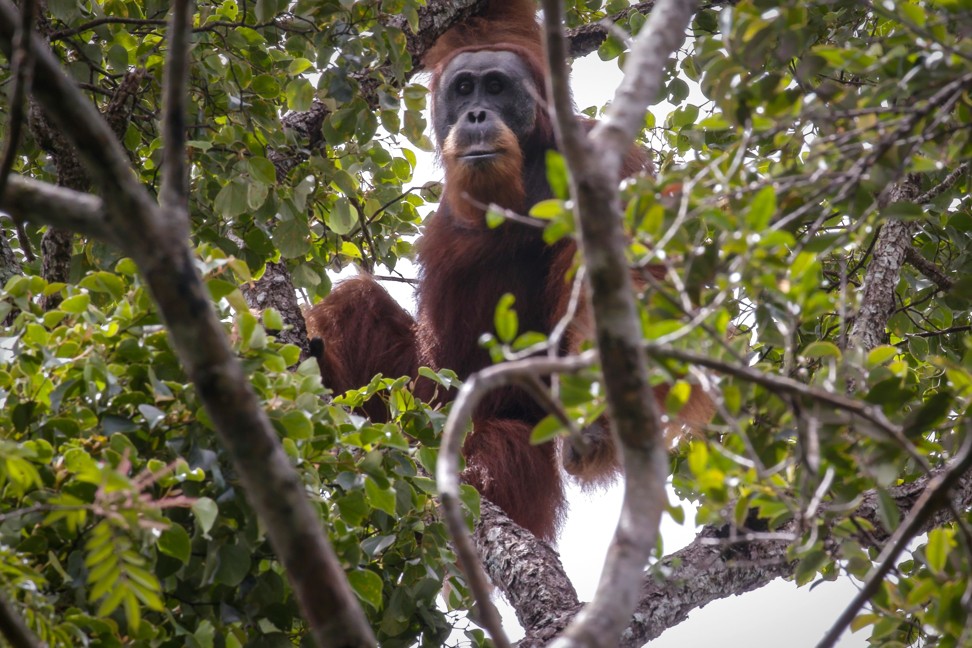
China’s institutions and banks need help from the world’s civil society to ensure the Belt and Road Initiative remains green
- A massive dam in northern Sumatra, financed by the Bank of China, threatens to wipe out the natural habitat of the Tapanuli orangutan
- The orangutan, discovered only in 2017, is the rarest species of apes
Activists of 12 countries conducted rallies in London, Hong Kong and Nairobi last week to protest financing by Bank of China to build the Batang Toru Dam in Indonesia’s North Sumatra, due to its catastrophic impact on communities and biodiversity.
If built, scientists say that the dam will doom the Tapanuli orangutan, which was only discovered in 2017, almost to certain extinction. It would also impoverish downstream communities who rely on the natural flow of the river for their livelihood.
With such extreme biodiversity impact, the Batang Toru Dam bears the uncomfortable distinction as not only the first project under the Belt and Road Initiative (BRI) to potentially trigger the collapse of an entire species, but also the first to spark a global wave of protests against a Chinese bank.
International outcry against ill-conceived Chinese investments are growing, and this is not directed only at those with extreme biodiversity impact.
Financial institutions bankrolling the BRI are also coming under fire for failing to constructively engage and listen to civil society. The BRI calls for environmental protection with “with higher standards” and encourages the “exchange and cooperation of non-governmental environmental organisations,” according to the Chinese government.
But Chinese financial institutions won’t be able to make good on that promise by their government because they don’t seem to know how to engage with civil society.

For instance, during last week’s worldwide protests, Bank of China’s Seoul branch refused to accept a letter detailing concerns about the Batang Toru Dam from Korean activists. Bank of China insisted that such “opinions” must instead be delivered to the Chinese Embassy, even though Bank of China is directly financing the project.
If Bank of China truly aspires to be a responsible corporate actor in the global economy, it should be willing to productively engage with members of the public who are genuinely concerned about the potential extinction of an entire species, and not merely punt difficult feedback to the Chinese government.
Unfortunately, activists from Nairobi, New York, Brussels, Jakarta, London, Manila, Seoul, and Hong Kong heard similar excuses or pushback when knocking on Bank of China’s doors last week. In countries where no local Bank of China branch exists, such as in Togo, Ghana, Spain, and Mozambique, activists knocked on their local Chinese embassy doors instead.
China says multinational lenders are to blame for belt and road debts
Notably, these protests occurred as a result of Bank of China’s ongoing failure to respond to earlier concerns within Indonesia about the risks of the dam.
Unless the bank meaningfully engages with Indonesian and international civil society on the urgent biodiversity and social risks of the Batang Toru Dam, and goes beyond issuing ineffective boilerplate responses, these kinds of protests will most likely continue.
To be fair, the Chinese government is actually far ahead of the US and European governments when it comes to promoting environmental protection in their investments abroad.
Since the early 2000s, the Chinese government has developed a broad policy framework which encourages banks to strengthen their environmental and social risk management, and comply with local laws and international standards in their overseas investments.
More recent policies have even directly called for “quality communication channels” between non-governmental organisations (NGOs) and Chinese financial institutions.
While these are positive steps, Chinese banks themselves still fall below international best practice when it comes to engagement with civil society.
Examples of Chinese banks constructively engaging with civil society are rare, while stories of them ignoring public inquiries abound, from Ecuador to Kenya and other countries. This creates the impression that at best, Chinese banks are merely ill-equipped to address the public, or at worst, they simply don’t care.
The simple truth is that Chinese financial institutions will find it difficult to turn their central government’s green policies into practice without the help of civil society. The environmental, accountability, and transparency systems in place at Western banks only occurred as the result of decades of intervention and education by civil society groups.
These groups have served as a critical resource in helping banks verify and “ground truth,” providing direct information of what’s happening on the ground in the real world, versus what’s written merely on paper. Regrettably, this appears to be one of the hardest lessons for Chinese banks to learn so far.
Time is quickly running out for the Tapanuli orangutan, both the most recently discovered and rarest ape in the world.
Orangutans have already been spotted fleeing the dam development site in Batang Toru. Ill-designed projects like the Batang Toru Dam are preventing the BRI from actually being green, and by not engaging with civil society, the institutions bankrolling the BRI won’t be able to meet that promise.
Michelle Chan is Vice-President of Programs at the Friends of the Earth, United States

